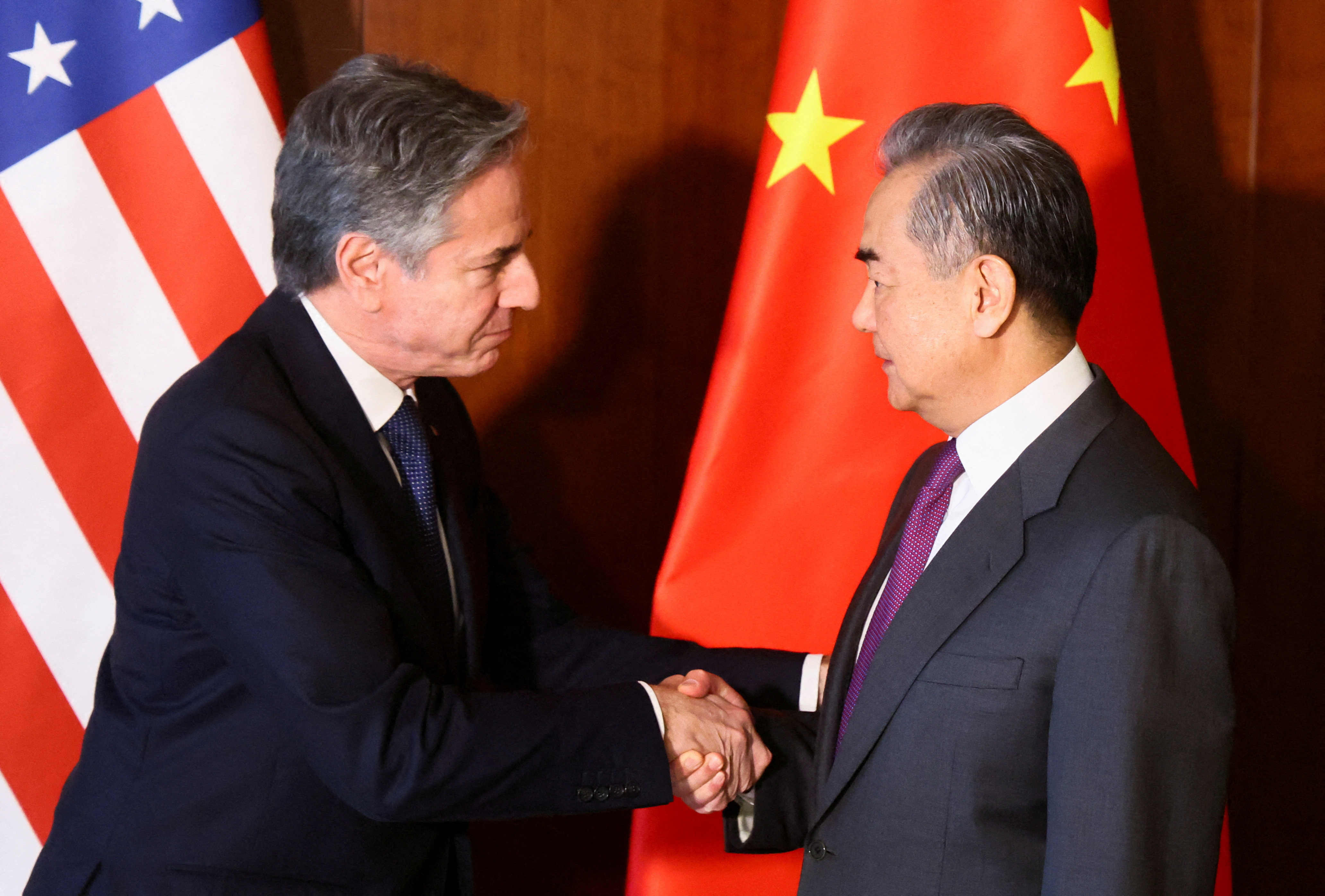US and China officials discuss Russia-North Korea military cooperation, State Department says

By David Brunnstrom and Katharine Jackson
WASHINGTON (Reuters) -A top U.S. official on North Korea held a video call this week with China’s envoy on Korean Peninsula affairs in which they discussed the growing military cooperation between Moscow and Pyongyang, the State Department said on Friday.
The U.S. senior official for North Korea, Jung Pak, and her Chinese counterpart, Liu Xiaoming, also addressed North Korea’s “increasingly destabilizing and escalatory behavior,” the department said in a statement.
It said the growing military cooperation between Russia and North Korea was “in violation of numerous U.N. Security Council resolutions.”
A Chinese foreign ministry statement said it was “in the common interest of the region and the international community to maintain peace and stability on the Korean Peninsula and push forward the process of political settlement… .”
It said the “parties concerned should … address each other’s concerns in a balanced manner through meaningful dialogue,” and that China and the United States had agreed to maintain contact on the issue.
The Chinese statement made no mention of Russia, which has long been party to U.N. sanctions on North Korea over the latter’s ballistic missile and nuclear weapons programs but has stepped up ties with Pyongyang since invading Ukraine in 2022.
Washington has accused North Korea of supplying Russia with artillery shells and missiles used in Ukraine.
Moscow and Pyongyang deny this but have vowed to deepen military relations.
The U.S. statement said the call with China followed a Feb. 16 meeting between Secretary of State Antony Blinken and Chinese Foreign Minister Wang Yi in which they “affirmed the importance of continued communication on (North Korea) issues at all levels.”
The Kremlin on Tuesday said Russian President Vladimir Putin had given North Korean leader Kim Jong Un a Russian Aurus limousine as a gift. On Friday, Washington imposed sanctions on the producer of the car as part of a sweeping round of sanctions against Russia to mark the second anniversary of its invasion of Ukraine.
The sanctions and trade restrictions also targeted Chinese companies that the U.S. said were assisting Russia’s war.
Sino-U.S. relations have shown signs of improvement in recent months with steps to re-establish communication channels after ties sank to their lowest levels in decades.
But many points of friction remain, including U.S. sanctions on China over security and human rights issues. Wang told Blinken these should be lifted.
The spokesperson for China’s embassy in Washington, Liu Pengyu, called the latest sanctions against Chinese firms “a typical move of economic coercion, unilateralism and bullying.”
The top U.S. official for arms control, Bonnie Jenkins, told an event on Thursday that Washington was keen for more talks with China on strategic stability and crisis management and that a more aggressive North Korea was not in Beijing’s interest.
She said she believed North Korea, which borders China, is keen to acquire fighter aircraft, surface-to-air missiles, armored vehicles, ballistic missile production equipment or materials, and other advanced technologies from its cooperation with Russia.
(Reporting by Katharine Jackson and David Brunnstrom; Writing by Paul Grant; Editing by Paul Simao and Daniel Wallis)








